
Dr. Filip Aggestam manages the Scientific and Technical Review Panel (STRP) processes, provides technical support to the work of the STRP and coordinates support in development and implementation of its workplan for the Convention on Wetlands. In addition, he provides advice on specific policy matters in the work plan of the Secretariat of the Convention on Wetlands. Filip is a Swedish national and an environmental engineer and conservation biologist by training, with a PhD in environmental engineering from the University of Natural Resources and Life Sciences in Vienna. Prior to joining the Secretariat Filip worked with UNEP as a Technical Expert focusing on technical cooperation and reporting on the sustainable use of terrestrial and aquatic ecosystems under the global indicator framework for the SDGs. He has also managed the programme on environmental monitoring and assessment for the UNECE, developing a Shared Environmental Information System (SEIS) in the pan-European region, and worked as an environmental policy researcher for the European Forest Institute in Vienna and Brussels.
Presentation title: From loss to recovery – Scaling effective wetland restoration
In response to Resolution XIV.6, the Convention on Wetlands recently assessed the progress of wetland restoration initiatives worldwide. This study critically evaluates the current state, effectiveness and challenges of these initiatives by synthesising peer-reviewed scientific literature, global datasets, and diverse case studies. Developed under the guidance of an advisory group comprising representatives from leading international organisations, including the UNCCD, the FAO, and the CBD, the assessment emphasises the important role of wetlands in supporting biodiversity, regulating the climate, and underpinning the SDGs. Despite an increasing international consensus on the ecological and socio-economic importance of wetlands, the report reveals that wetland loss and degradation are still occurring at an alarming rate. Restoration efforts are often hindered by insufficient financial resources, limited technical expertise, and fragmented or inconsistent policy frameworks. The assessment therefore advocates the adoption of integrated, evidence-based restoration strategies, calling for enhanced multi-level collaboration between governments, practitioners and local communities to improve restoration outcomes on a larger scale. Key recommendations include harmonising policy and regulatory frameworks at national and international levels, prioritising investment in capacity building and knowledge transfer, and mobilising innovative financing mechanisms. The findings also emphasise the importance of robust monitoring, adaptive management, and inclusive stakeholder engagement to ensure the long-term success and resilience of wetland restoration efforts.
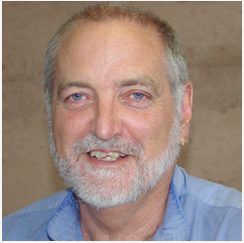
Charles Sturt University, Australia
https://www.csu.edu.au/research/gulbali/find-experts/profiles/aquatic-science/max-finlayson
Prof Max Finlayson is a wetland ecologist with extensive experience internationally in the science and management responses of wetlands to water pollution, mining and agricultural impacts, invasive species, climate change, and human well-being and wetlands. He has participated in global assessments of wetlands and climate change, biodiversity, and ecosystem services, and has been an independent technical advisor to the Ramsar Convention on Wetlands since the early 1990s. His expertise in wetland inventory and assessment has extended to address the social issues associated with wetland management, with an emphasis on participatory management and engagement with local communities.
Presentation title: Interactions Between Human Well-Being and Wetlands Health in the Anthropocene
The continued loss and degradation of wetlands indicates a failure by wetland managers and policymakers to come to grips with the increasing human impact on wetland biodiversity and ecosystem services. As humans face the ecological consequences of the Anthropocene epoch past ways of considering wetlands and responding to the drivers of adverse change may be even less successful than in the recent past.
Solutions for addressing wetlands loss and sustaining healthy wetlands can be built on more nuanced understanding of the relationships between humans and wetlands. This raises questions around the foundational concepts and approaches for wetland management that were largely developed from an ‘ecological worldview’. There is a strong case for bridging social and ecological divides and providing a safe operating space for healthy wetlands, especially considering the impacts of climate change which requires society to embrace uncertainty and to find systemic solutions. The case for a transdisciplinary approach to wetland management is explored by considering: wetlands as coupled social–ecological systems; understanding the role of values and worldviews in managing wetland systems; developing a social–ecological systems interpretation of wetland wise; and applying a social–ecological systems approach with wetlands as settings for human health and well-being, livelihoods, lifestyles, and culture.
It would be parsimonious to claim that human dimensions of wetlands conservation have not received any attention. On the contrary, local communities have long been associated with successful wetland management. However, the engagement of social sciences has largely been instrumental, mostly focused on justifying conservation action, without challenging or questioning the underlying conservation philosophy. Unless insights from social sciences further permeate the core concepts of wetland policy and management it is hard to see great headway in halting and reversing wetland degradation and loss.

University of Exeter, UK
Angela is a biogeochemist with expertise in climatic regulation of carbon fluxes in terrestrial ecosystems. Her particular ecosystem of interest is peatlands. She loves peatlands and she has purposely worked on different climatic zones to have a global perspective on these ecosystems. Angela tries to bridge empirical field, laboratory methods and modelling. She aima to elucidate the role of peatlands in the global carbon cycle and uses a variety of methods in order to achieve this, including gas flux measurements, the paleo-record, modelling and biogeochemistry. As a postdoc, Angela published a study on drivers of the global peatland sink which was the foundation for an on-going ERC Consolidator project application focussed on tropical peatlands (TroPeaCC: ). This work complements a current NERC project to study the Arctic peatland sink (ICAAP). She keeps busy as a co-I in other projects in the tropics such as KALI ( ) and working to better understand temperate peatlands (MOTHERSHIP) Angela also enjoys community building work which she does through the co-leadership of CPEAT: Carbon in PEAtlands through Time international working group.
Trajectories of change: from expanding Arctic mires to threatened temperate and tropical peatlands.
Angela Gallego-Sala
Co-authors: Katherine Crichton, Karen Anderson, Josie Handley, Richard Fewster, Dan Charman, Yuwan Wang.
Interest in peatland science has intensified in recent years because: a) the peatland carbon store, previously considered to be mostly inert, has been found to be vulnerable (e.g. peatland fires in SE Asia or Russia); b) peatlands have experienced increases in human land-use that entail drainage and loss of stored carbon, and this have put them in the spotlight in terms of nature climate solutions; and c) new areas of the world, especially in the tropics, have been revealed as peatland-rich in recent years (Amazon, Congo Basin, etc.). Indeed, peatlands store large amounts of carbon, with relatively recent estimates (Nicholls and Peteet, 2019) doubling previous older estimates (Yu et al., 2011). This discrepancy reflects a knowledge gap in the distribution of peatlands worldwide. Not only there is uncertainty on the extent of peatlands, and carbon inventories, but also in how carbon exchange between peatlands and the atmosphere will change in the future. We will present an overview of some of the expected and/or observed changes to peatlands from the poles to the tropics, including the results of a project (ICAAP: Increased Carbon Accumulation in Arctic Peatlands) testing the hypothesis that peatlands will expand into the Arctic and therefore help mitigate some of the carbon releases expected at high latitudes. In the tropics, carbon accumulation rates may decrease in the future (Gallego-Sala et al., 2018), and experts suggest that carbon losses are already underway and are likely to increase as a result of warmer temperatures, drought, land-use and fire (Loisel, Gallego-Sala et al, 2021). If we want to use peatlands as a possible nature based climate solution, we need to improve our understanding of global peatland functioning and changes to peatland extent at high and low latitudes to better safeguard these important ecosystems and use their full potential to store carbon in the future (Alexandrov et al., 2019).
Alexandrov G.A. et al. 2019. The limits to northern peatland carbon stocks. Biogeosciences Discuss., https://doi.org/10.5194/bg-2019-76
Gallego-Sala, A. V., Charman, D.J., et al. 2018. Latitudinal limits to the predicted increase of the peatland carbon sink with warming. Nature Climate Change 8, 907–913.
Nichols J., Peteet D. 2019. Rapid expansion of northern peatlands and doubled estimate of carbon storage, Nature Geoscience, doi:10.1038/s41561-019-0454-z
Loisel, J., Gallego-Sala, A. et al. 2021. Future vulnerability of the global peatland carbon sink. Nature Climate Change 11 70-77.
Yu, Z. C. 2011. Holocene carbon flux histories of the world's peatlands: Global carbon-cycle implications. The Holocene 21, 761-774.
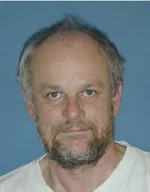
Aarhus University, Denmark
https://pure.au.dk/portal/en/persons/ej%40ecos.au.dk
Erik Jeppesen is, professor at Aarhus University in Denmark and visiting professor at Yunnan University, China. His main research fields are aquatic ecology, climate change, lake restoration and eutrophication control. He has published more than 1000 SCI papers, including journal papers such as Science, PNAS, Nature Climate Change, Nature Geoscience, The Innovation and Trends in Ecology & Evolution, and he is cited >102,000 times on Google Scholar with a H-index of 141.
Global Lakes in Warming World
The world faces substantial challenges to freshwater, land and biodiversity resources and environmental sustainability. Steadily increasing global populations along with increases in agricultural production are leading to increased risks of loss of ecosystems and biodiversity, pollution of surface and groundwater and enhanced pressure on ecosystem services. Many lakes across the world have become highly eutrophic, causing algae blooms and turbid water. With global warming, lakes show enhanced symptoms of eutrophication. Changes in precipitation affect nutrient loading to lakes. Nitrogen (N) and phosphorus (P) loading is expected to increase in the north temperate zone, not least during winter, and decrease in the warm temperate zone and arid streams. Higher temperatures enhance P release from the sediment. Despite reduced loading in arid systems, N and P concentrations may increase here also due to a lower water table in both lakes and streams and a lower oxygen pool in the water, resulting in higher internal nutrient loading. In addition, the lakes in these areas may become more saline. Fish will become more numerous (higher biomass and production per unit of P) and smaller, and the predation pressure from fish on large-bodied zooplankton will increase, reducing grazing on nuisance algae. Moreover, the positive feedback effects of submerged macrophytes on water clarity will become weaker. This, in turn, will reinforce the risk of algae blooms and dominance of potential toxic cyanobacteria, the latter being further reinforced by the higher temperatures. Therefore, the critical nutrient threshold for good ecological status will be lower in a warmer world, and managers must make more effort to reduce external nutrient loading to shift turbid lakes to a clearwater state. It is important that scientists communicate this message to politicians and lake managers. In this talk, I will show results from latitude gradient studies from the Arctic to the tropics, time-series analyses, large- and small-scale experiments and from modelling.
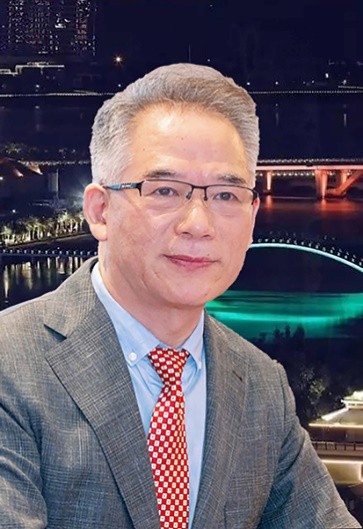
Dr. Nianzhi Jiao is a Chair Professor of Cheung Kong Scholar at Xiamen University. Fellow of the Chinese Academy of Sciences (CAS), Fellow of The World Academy of Sciences (TWAS), and Fellow of the American Academy of Microbiology(AAM).
Dr. Jiao majored in Marine Ecology and Environmental Sciences. He has published more than 300 SCI research papers in English journals including Nature series, Science, PNAS etc, Dr. Jiao proposed the concept of the Microbial Carbon Pump (MCP) which is new mechanism for carbon sequestration in the ocean (Nature Reviews), and commented by Science as “The invisible hand behind a vast carbon reservoir”. The MCP has been included in the IPCC Special Report and the IOC carbon report. He received twice the silver medals of the National Natural Science Award (1st place); The "First National Innovation Award"; He-Liang He-Li Science and Technology Award etc.
Dr. Jiao is currently leading a UN Ocean Decade international program "The Global-ONCE” endorsed by the Intergovernmental Oceanographic Commission (IOC), UNESCO.
Ocean Negative Carbon Emissions (ONCE): A newly Launched UN Decade program
Current international pledges for emission reductions are very likely insufficient to limit temperature increase less than 2.0°C by the end of the century. To keep this goal alive, an enhanced action plan is needed to take up more atmospheric CO2. The ocean is the largest active carbon reservoir on the Earth, storing an amount of carbon about 20 times that of the land and 50 times that of the atmosphere, and thus possesses huge potential for CO2 negative emissions. All the mechanisms for carbon sequestration in the ocean [Biological Carbon Pump (BCP), Carbonate Counter Pump (CCP), Microbial Carbon Pump (MCP), Solubility Carbon Pump (SCP)] are considered to be integrated as BCP-CCP-MCP-SCP (BCMS) for maximum potential of carbon sink and sustainable development.
Global Ocean Negative Carbon Emissions (Global-ONCE) is a 15-year research program endorsed in June 2022 under the UN Decade for Ocean Science for Sustainable Development The objective of Global ONCE is to provide data, knowledge and best practices in the application of ONCE approaches towards achieving the global strategy of carbon neutrality by mid-century. The priority areas for collaborative research of ONCE includes: 1) biological, chemical and physical processes which enable the ocean to take up and store CO2; 2) methods and models to monitor and evaluate the efficiency of ONCE approaches; 3) ecological and technical engineering solutions to scale up ONCE approaches; 4) social science and governance/legal frameworks needed to put ONCE approaches into practice; and 5) model-data integration, data sharing, interoperability standards, and key ocean variables. The ONCE approaches include not only the well-known individual techniques but also comprehensive ecoengineering practices such as wetland restoration practice, mariculture manipulation technologies, enhancement of alkalinity in waste water treatment effluents, microalgal biomass production and CO2 sequestration using ocean-based floating photobioreactors, sensor development, numerical modelling, observation and simulation experimental facilities, and expert exchange programs.
Keywords: Microbial Carbon Pump, Ocean Negative Carbon Emissions, Carbon, wetland restorations, Carbon Neutrality
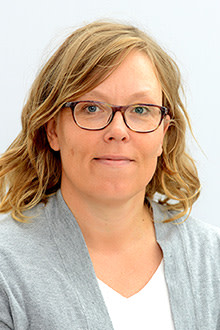
Finnish Meteorological Institute and Univ. of Helsinki, Institute for Atmospheric and Earth System Research
Annalea Lohila (PhD) is specialized in biogeochemical cycles and greenhouse gas flux measurements, she has contributed to building flux measurement stations compliant for ICosand developing the measurements. Her work of decades has dealt with carbon dioxide, methane and nitrous oxidefluxes between biosphere and atmosphere in different boreal ecosystems, particularly on pristine and managed peatlands.
Breathing with the peatlands: greenhouse gas fluxes and climate resilience in a changing world
Since the last deglaciation, peatlands have gradually locked away immense amounts of carbon, quietly influencing the global climate system. But how stable are boreal peatlands as carbon stores in a warming climate? This question is becoming increasingly urgent as these ecosystems face rising pressures from both climate change and human activity. These pressures not only alter their natural functioning but also threaten both their biodiversity and long-term carbon storage capacity. In particular, drainage for agriculture, forestry, energy peat extraction, and horticulture has led to extensive degradation, biodiversity loss, and a reversal of the peatland carbon sink function.
In this presentation, I will focus on insights gained from several case studies conducted in boreal peatlands, where atmosphere-ecosystem interactions have been investigated using long-term flux measurements, short-term campaigns, and process-based modeling. These complementary approaches allow us to explore how climate change and land use affect the carbon and nitrogen cycles of peatlands across different timescales and management regimes.
Key questions I will address include: What can we reliably conclude from greenhouse gas flux measurements, and where do the key uncertainties lie? What have we learned about ecosystem-scale methane emissions in pristine peatlands, and how do these emissions respond to climate variability? What are the controls for the year-to-year variability in CO2 exchange between different peatland ecosystems? In addition, I will discuss the climate impacts of various after-use options for cutover peatlands, comparing the greenhouse gas balances of restoration, afforestation, and other management strategies. By synthesizing results across multiple sites and approaches, I aim to highlight the importance of moving beyond single flux studies toward a broader understanding of peatland-climate feedbacks in a rapidly changing world.

Sarawak Tropical Peat Research Institute, Kota Samarahan, Malaysia
Datu Dr Lulie Melling is not only an outstanding soil scientist, but also the visionary founder and director of the Sarawak Tropical Peat Research Institute (TROPI) in Malaysia. Her pioneering spirit and leadership have been instrumental in advancing scientific understanding and sustainable management of tropical peatland ecosystems on a global scale. Her work is a cornerstone in the development of sustainable land use practises and innovative conservation strategies in these critical environments to mitigate climate change in the quest for food security.
After completing her MAgrSc in Soil Science at the University of Reading, UK, and her PhD at Hokkaido University, Japan, Dr Melling began building TROPI into a leading research institution. Under her leadership, TROPI has developed into a thriving institute recognised worldwide for its profound contributions to tropical peatland research. Dr Melling’s initiative had led to the construction and commissioning of three eddy covariance towers on tropical peatlands, which contributed to the significant advancement for the real-time monitoring of greenhouse gas exchange.
Her current focused research on the ecophysiology of the sago palm in tropical peatlands combines theoretical science with practical applications in agriculture and conservation, is making her work crucial in both academic and applied settings. Dr Melling is also an advocate for environmental policy, where she uses her expertise and insights to guide policy makers and stakeholders towards sustainable ecosystem management.
In recognition of her advancements and contributions for the science of things, Dr Melling has been decorated with numerous awards, her career thus far is a testament to her unwavering commitment and dedication towards excellence and innovation. At INTECOL 2025, Datu Dr Melling will share her latest groundbreaking research findings. She will provide in-depth insights into the challenges and opportunities of tropical peatland conservation and development, paving the way for future environmental solutions for climate change mitigation and food security.
Tropical Peatlands in South-East Asia – Challenges for Conservation, Management and Restoration
Tropical peatlands in Southeast Asia are vital ecosystems that serve as planetary reservoirs for biodiversity conservation, carbon storage and maintaining hydrological stability. Covering an area of approximately 24 million hectares in Indonesia and 1.54 million hectares in Malaysia, these peatlands sequester around 68.5 billion tonnes of carbon and thus play an important role in global climate regulation. Despite their importance, they are severely threatened by the expansion of agriculture, particularly for oil palm and pulpwood production, as well as by illegal logging, infrastructure development and habitat fragmentation. These activities compromise both the ecological integrity and the socio-economic stability of the regions.
The expansion of oil palm plantations has been a major economic driver but also presents significant sustainability challenges on peatlands. Targeted research is needed to develop and implement sustainable methods for managing oil palm cultivation on peatlands. This research must also extend to increase land productivity and exploring alternative crops that could provide economic benefits without the environmental costs of current agricultural practises.
Significant data gaps on the distribution, condition and ecological functions of peatlands hinder effective conservation strategies. Advances in remote sensing and comprehensive soil surveys are crucial to bridging these knowledge gaps and enable the formulation of precise conservation strategies and effective climate change mitigation efforts.
Challenges in governance further complicate peatland management. Fragmented responsibilities and inconsistent policies combined with insufficient funding for peatland research lead to mismanagement of resources. Inadequate integration of environmental, social and governance (ESG) principles exacerbates socio-economic vulnerability, leading to lower agricultural productivity, loss of traditional livelihoods and community instability. Restoration efforts must integrate environmental and socio-economic needs, including rehabilitation of degraded peatlands, reforestation with sago palm and promotion of sustainable economic activities that improve community well-being.
Emerging global trends in carbon trading offer promising opportunities for the conservation of peatlands through the monetisation of carbon sequestration. This economic incentive can promote conservation efforts and transform ecological restoration into a viable economic endeavour that supports ecological conservation and improves the economic resilience of local communities by providing sustainable sources of income without displacing traditional livelihoods.
An interdisciplinary approach is needed to address the multi-faceted challenges of peatland restoration and management. This strategy should integrate environmental, economic and social dimensions and be supported by improved legal frameworks and comprehensive policy measures. Recognising the socio-economic contribution of oil palm and exploring new potential crops are crucial for balanced development and sustainable land use. The governance framework must also uphold the rights of local communities and ensure equitable participation and profit-sharing in initiatives such as carbon trading.
The future of tropical peatlands in Southeast Asia depends on recognising their dual ecological and socio-economic importance. Strengthening scientific research, improving governance, integrating sustainable development principles and promoting international collaborations are essential to realise their full potential. By prioritising ecological restoration, sustainable livelihoods and community resilience, we can ensure the conservation and sustainable management of tropical peatlands for generations to come.
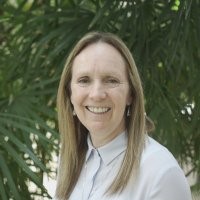
Groupe de recherche en écologie des tourbières, Université Laval, Canada
Reviving Peatland Ecosystems with Moss Magic: Harnessing Sphagnum and Brown Mosses for Ecological Restoration
Peatlands, critical wetland ecosystems known for their role in carbon storage, water regulation, and biodiversity support, are under increasing threat from human activities such drainage for agriculture, overgrazing, mining industry, urban development and peat extraction. Restoring these ecosystems is essential for mitigating climate. One promising approach to peatland restoration involves reintroducing Sphagnum mosses for cutover bogs. These mosses play a pivotal role in peatland ecology due to their remarkable ability to retain water and create acidic, nutrient-poor conditions conducive to peat formation.
Sphagnum mosses, often referred to as "ecosystem engineers," are particularly effective at capturing and storing carbon. Their unique cellular structure allows them to retain large amounts of water, creating saturated conditions that slow down decomposition processes and promote peat accumulation making them invaluable for climate change mitigation efforts. Despite the self-amplifying feedback of Sphagnum mosses, peatland restoration worldwide still relies primarily on rewetting actions. Recent studies, including meta-analyses (2024), models (2021), and review syntheses (in press), partly based on monitoring 177 degraded peatlands in Canada, highlight the potential of emergent trait-driven feedbacks for successful restoration.
Fen brown mosses, while less widely recognized, also play a crucial role in peatland carbon sequestration. They thrive in slightly different conditions compared to Sphagnum mosses, often inhabiting minerotrophic (nutrient-rich) peatlands. To improve rich-fen restoration, the water table crux for peatland recovery will be discussed based on more than 200 peatland studies across temperate and northern regions.
Integrating Sphagnum and brown mosses into restoration projects involves careful site assessment, selection of appropriate species, and management of hydrological conditions. Successful restoration efforts not only revive peatland ecosystems but also enhance their capacity to act as carbon sinks, water regulators, and biodiversity hotspots. Harnessing the "moss magic" of Sphagnum and brown mosses thus represents a vital strategy in the global effort to restore peatland ecosystems and mitigate climate change.

Arctic Program Director in Woodwell Climate Research Center, USA
Dr. Jennifer Watts is a systems ecologist who studies interactions between carbon and water cycles, land use and climate change. Dr. Watts specializes in Northern Hemisphere dynamics through field study, remote sensing and ecosystem modeling. Many of her studies focus on greenhouse gas accounting and ecological monitoring. She has a deep appreciation of all ecosystems, though peatlands are her favorite.
Permafrost Thaw and Global Warming: Perspectives for Arctic Wetlands?
The arctic-boreal region represents approximately 20% of Earth’s land surface, encompassing large expanses of taiga forest and treeless tundra. Much of this landscape is underlain by permafrost — ground remaining frozen for two or more years — and overlaying active layer soils that experience strong seasonal freeze/thaw cycles. This region is extremely important as it holds over 50% of the global soil organic carbon pool (> one trillion tonnes of carbon) and 20 to >35% of global wetlands. The wetlands here are diverse, spanning ancient and emerging bogs, fens, marshes, and wet tundra, often having connectivity with areas of seasonally dynamic open water, and further characterized by spatial heterogeneity in permafrost thaw. The arctic-boreal region is currently under threat, with air temperatures rising two to four times faster than elsewhere on the planet. Consequences of this warming are widespread, especially apparent in rapidly thawing and collapsing soils, the increasing occurrence and severity of ecosystem disturbances (including changing hydrology and fire), and increasing emissions of carbon dioxide (CO2) and methane (CH4) from wetlands into the atmosphere. This presentation overviews the importance of wetlands within the permafrost-affected arctic-boreal region from an ecological and climate perspective, highlighting progress in the mapping of these (historically under documented) ecosystems, in understanding of the vulnerability and response of permafrost-impacted wetlands to warming, changes in wetness, and fire disturbance, and how these changes ultimately might impact the crucial ecosystem services (including climate mitigation) provided by these systems. Lastly, this talk offers suggestions for urgent actions that should be taken by the global science and policy communities to protect these vulnerable environments.
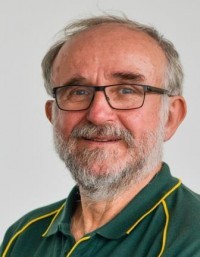
Czech University of Life Sciences, Prague, Czechia
Jan Vymazal graduated from the Institute of Chemical Technology in Prague, Czech Republic in 1980 and received the Ph.D. at ITC in 1985. Between 1985 and 1991 he was affiliated with Water Research Institute in Prague at the department of wastewater treatment. In 1991, Jan joined Duke University Wetland Center, North Carolina, USA as a visiting scholar. During his stay at Duke University until 1993 he focused on the wetland plant communities in Florida Everglades. Between 1994 and 2006 Jan worked as free lance researcher focusing mostly on constructed wetlands for wastewater treatment. In 2007, he joined Faculty of Environmental Sciences at the Czech University of Life Sciences in Prague. He is currently a head of Department of Applied Ecology and vice-rector for research and science. Jan has authored more than 180 papers indexed in Web of Sciences with over 17 000 citations and H-index of 63. He wrote two books and edited nine books on natural and constructed wetlands. He is Editor-in-Chief of the journal Ecological Engineering.
Constructed wetlands for removal of nitrogen from agricultural drainage waters
Diffuse pollution from agricultural drainage is a severe problem for water quality and it is one of the major reasons for the eutrophication of both freshwaters and coastal waters. The ability of natural wetlands to retain nitrogen from freshwater was recognized and has been reported since the 1970s. Constructed wetlands (CWs) for treatment of agricultural drainage waters were proposed as potential treatment systems in the early 1990s. Since then, numerous CWs have been used to treat such waters around the world with the majority of systems being CWs with free water surface. However, in drainage waters, most of the nitrogen occurs in the form of nitrate so subsurface horizontal flow CWs may have greater potential. The objective of this paper is to summarize the results from both surface and subsurface flow CWs treating agricultural drainage around the world. The results from more than 50 free water surface CWs reveal that the removal of nitrogen usually amounts to about 1000 kg N/ha year. The removal of nitrogen in subsurface flow CWs is usually higher, amounting up to 9000 kg N/ha year. This can be explained by the fact that most of nitrogen in tile drainage is in the form of nitrate and anoxic/anaerobic subsurface flow CWs provide better conditions for denitrification. However, it has also been shown that other parameters, such as flow rate, have an effect on nitrogen removal. For subsurface flow CWs, the results clearly revealed that the higher the flow, the lower percentual efficiency and higher removal of nitrogen load. In free water surface CWs, the wetland to watershed area ratio and hydraulic retention time can have a great impact on percentual removal of nitrogen. The results of available data clearly indicate that CWs are a suitable tool for nitrogen removal from agricultural drainage waters.
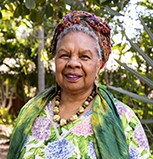
University of Notre Dame, Broome, Australia
Professor Anne Poelina citizen Nyikina Warrwa (Indigenous Australian) Nation, PhD, PhD, MEd, MPH&TM, MA. Chair & Senior Research Fellow Indigenous Knowledges Nulungu Institute Research University of Notre Dame, Adjunct Professor, College of Indigenous Education Futures, Arts & Society, Charles Darwin University, Darwin. Anne was the Murray Darling Basin (MDB) inaugural First Nations appointment to its independent Advisory Committee on Social, Economic and Environmental Sciences (2022). Visiting Fellow Water Justice Hub at The Australian National University, Canberra. Inaugural Chair of the Martuwarra Fitzroy River Council (2018). Co-winner of the Women Taking Climate Action Award, awarded by the Zonta Club of Melbourne on Yarra and the Zonta International District 23 Zonta Says NOW team (2023). Awarded Kailisa Budevi Earth and Environment Award, International Women’s Day (2022) recognition of her global standing.
Ambassador for the Western Australian State Natural Rangelands Management (NRM) (2023). Assistant Commissioner National Water Initiative (NWI), Productivity Commission -Australia (2024). Member of the Commonwealth Department Climate Change Energy the Environment and Water, Indigenous Advisory Committee (2024).
Founding member of the Commonwealth Department Climate Change Energy the Environment and Water, Aboriginal Water Interest Group and the Western Australian government Aboriginal Water and Environment Group (AWEG). In 2017, she was awarded a Laureate from the Women’s World Summit Foundation (Geneva). Anne is a Peter Cullen Fellow for Water Leadership (2011).
See www.annepoelina.com & www.livingwaterheritage.org
Knowing Living Ground Water
First Australians, Indigenous peoples of Australia have managed the living water systems of Australia from the beginning of time. This knowledge and lived experience showcase relationships and connectivity of our people, to land and water as being alive and in communication with human and non-human kin. This presentation is a provocation for an alternative conception to the scientific hydrogeological knowledge and approach that informs extractive and exploitative interests in the Martuwarra Fitzroy River, see: www.livingwaterheritage.org. In this alternative view, developed on a foundation of ancestral personhood, we tease out the entangled skeins of Martuwarra knowledges, languages, deep histories, and stories, to propose a just and equitable approach to ground water extraction and the importance of co-governance in water planning, extraction and management for the region. In developing this alternative vision for River governance, we highlight the critical role that Martuwarra Indigenous worldviews and ancient knowledges and practices have in shaping understandings of the River ecosystem. Importantly, why this intergenerational knowledge is important to protect and care for these living water systems and their connectivity to the wellbeing of Country (land), people, biodiversity and our non-human kin, see www.annepoelina.com.
Keywords Indigenous science, groundwater, Martuwarra Fitzroy River, water capitalism, intergenerational knowledge transfer, governance
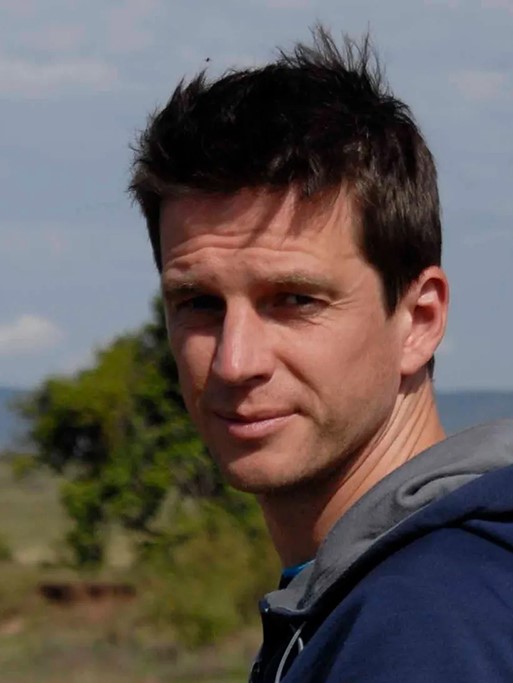
35percent, Cobra Collective and
Society of Wetland Scientists Europe, UK
Dr. Matthew Simpson is a director of 35percent, an independent wetland specialist consultancy, and has over 25 years’ experience in managing wetland-related conservation, research, assessment and management projects. Matthew is also Co-Director of the Cobra Collective, that empowers marginalised communities through participatory engagement approaches and innovative technologies.
Matthew has managed conservation, research, management and capacity building projects in Europe, South Asia, Southeast Asia, Africa, South America and North America. He is currently the President of the Society of Wetland Scientists Europe, an accredited Professional Wetland Scientist and recent President of the Society of Wetland Scientists Professional Accreditation Program. He is a committee member of the Constructed Wetland Association, is an observer on the Scientific & Technical Review Panel for the Ramsar Convention on Wetlands, is a member of the Ramsar Wetland City Accreditation Independent Advisory Committee and is a member of the International Association for Ecology’s Working Group on Wetlands.
Rights of Wetlands – Transformative change to mend the broken human-wetlands relationship
The human-wetlands relationship is broken. Despite over 50 years of the Convention on Wetlands, with 172 countries committed to conservation and restoration, wetlands continue to be lost and degraded. The accelerating global biodiversity and climate crises are further impacting wetlands and threatening all life on earth. Wetlands are a key ecosystem for our survival but provide a depressing example of how things have gone so wrong for our planet and how existing strategies have failed. There are calls for transformative change but what does transformative change look like? How do we fix the human-wetlands relationship?
Many national governments and communities are demonstrating how we can transform our relationship with nature by recognizing the intrinsic value and therefore rights of all nature. A Rights of Nature approach requires a behavioural shift from a human centric view of the world, that places people outside of and above nature, to an ecological centered one that ensures the welfare and rights of all nature including humans.
This paper will dispel some of the myths about Rights of Nature and demonstrate how wetland science, practice and policy can inform, and be informed by, a Rights of Wetlands mindset, culture, and policy/legal framework. It will use examples from governments and communities from around the world to illustrate how a paradigm shift for how we humans understand, relate to, and manage wetlands, can deliver a more effective human-wetland relationship and result in the conservation of wetlands.